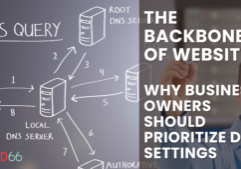Decoding Success: A Comprehensive Guide to Marketing Plan Evaluation
Marketing is a field that is constantly changing; campaigns are created, executed, and adapted in the blink of an eye. With such a quick process, it's easy to overlook the significance of marketing plan evaluation.
Taking time to assess the aftermath of a marketing project just might be the secret ingredient to sustained success and growth!
In this blog, we’ll look at the importance of post-marketing project evaluation, the main elements, and how it serves as a guide for refining future marketing strategies.
Guide To Post-Marketing Plan Evaluation
So you may be wondering: what does a post-project evaluation look like?
The best way to conduct an evaluation is with a comprehensive guide sheet. While the elements may vary depending on the type of project, the basics may look something like the following:
Project Details
Lay out the key details of the project. Include the name, the campaign period, and the team members involved. Additionally, be sure to include objectives (and don’t forget to be descriptive!)
Is your goal to increase brand awareness? Drive sales? Generate leads? Something else? Be specific.
Key Performance Indicators (KPIs)
Breaking down KPIs is essential for meaningful insights. Analyze quantitative metrics such as reach, engagement, conversion rates, and qualitative metrics such as customer feedback.
Be sure to look at budget allocation and resource utilization to gauge Return on Investment (ROI). This breakdown will highlight the successes and challenges of your project and indicate areas for future improvement.
List of Campaign Channels
What channels did you use? Social media? A mass email platform? Paid ads? List all of these channels and the associated metrics, like click-through rate, blog traffic, cost-per-click, and more.
Lessons Learned
What did your team learn from this project? Identify aspects of the campaign that were particularly successful along with any unexpected challenges faced during the project.
Future Campaign Recommendations
Are there adjustments needed in your strategy, messaging, or targeting tactics? Identify potential opportunities for exploration in future campaigns.
Conclusion and Next Steps
Summarize the overall success of the project and key takeaways for future reference. Outline when adjustments will be implemented, and schedule a date for a follow-up evaluation to assess the impact of any new changes.
Benefits of Post-Project Evaluation
By now, you probably have an understanding of how to set up a basic post-project evaluation—so what?
If you’re wondering if this process has any true lasting benefits, the answer is yes! Here are just a few:
1. Learning from Experience
When done correctly, post-project evaluations can be invaluable learning experiences for your whole team. Whether a marketing campaign exceeded expectations, faced challenges, or even failed, a strong evaluation will allow your team to dissect every aspect of the project to decide: What went wrong? Which parts worked?
By answering these questions, marketing professionals gain insights that go beyond surface-level metrics. This knowledge will guide your team toward more informed decision-making in similar future projects.
2. Refinement of Strategies
When it comes to marketing, what worked yesterday may not work tomorrow. That’s where a marketing plan evaluation can act as a refining tool—enabling marketers to tweak their strategies based on real-world outcomes.
Understanding the distinction of audience responses, engagement, and conversion rates provides a foundation for adapting and optimizing future campaigns for better results: a process essential for staying ahead in competitive markets!
3. Return on Investment (ROI) Assessment
Determining the success of a marketing campaign requires more than just looking at the initial results. A marketing plan evaluation offers a comprehensive view of your ROI.
By analyzing the cost-effectiveness of different channels and messaging tactics, marketers can allocate resources more efficiently to projects around the corner.
This insight is crucial for budget planning and ensuring that marketing efforts continue to contribute positively to the goal at hand.
4. Customer Feedback and Satisfaction
Effective and fruitful marketing goes hand-in-hand with truly understanding your audience. Post-project evaluations provide the opportunity to gather direct feedback from your target audience.
Whether you use surveys, social media comments, or other channels, understanding customer satisfaction and perception can be invaluable to your team.
Positive feedback reinforces successful strategies, and constructive criticism highlights areas for improvement. These two aspects work to provide a customer-centric approach to future marketing initiatives.
5. Building a Culture of Continuous Improvement
Post-project evaluations contribute to the development of continuous improvement within your marketing team. Instead of viewing the end of a project as a conclusion, use it as a stepping stone to your next innovation!
This mindset aids adaptability and resilience— two essential qualities in an industry like marketing where change is constantly happening.
Looking to Improve Your Marketing Strategy? RED66 Can Help!
In the fast-paced world of marketing, the journey shouldn’t end when a campaign concludes— instead, look at it as the beginning of a new cycle!
By embracing processes like this, your team can transform each project into a learning opportunity, refine their strategies, connect with their audience, and, most importantly, build a culture of continuous improvement that gears them toward success in the ever-evolving marketing landscape.
Want to evaluate your marketing strategy’s effectiveness? Reach out to RED66 today to learn more about how our team can help with this and more.










